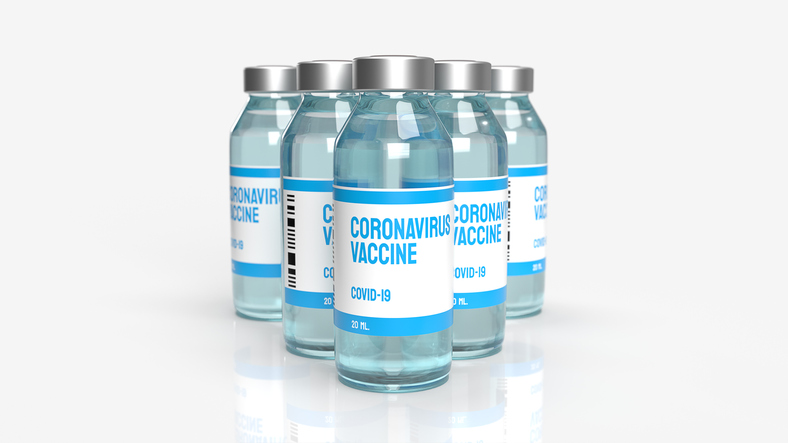At any given time, an estimated 15% of the US adult population has chronic kidney disease (CKD). It manifests as reduced kidney function to below 60% of its normal range (estimated glomerular filtration rate < 60 mL/min/1.73 m2) or by spillage of protein into the urine. The many causes of CKD include diabetes, hypertension, glomerulonephritis, and cystic kidney diseases. CKD is an irreversible malady with no known cure, and it invariably worsens over time. CKD is associated with higher mortality risks as it advances. If the patient does not die of cardiovascular or infectious events, end-stage renal disease ensues and the patient requires maintenance dialysis therapy or kidney transplantation to survive.
Read more.
FAQ: COVID-19 Basics for Transplant Patients
“If you or a loved one is a UCSF transplant patient, you can find answers here to questions about the COVID-19 vaccines and how to otherwise minimize your risk of infection.
Should I get a fourth dose of the vaccine?
Yes. For immunosuppressed individuals, a series of three mRNA doses is now considered a “primary” series of vaccination against COVID-19. The CDC has approved a fourth dose, as a booster, that you can, and should, get six months after the third shot.
Does vaccination protect against the latest variant of the virus?
Existing vaccines likely do provide some immunity against omicron, the newest known variant of COVID-19, but boosters are important to maximize protection, according to a CDC statement issued when omicron was first detected in South Africa on Nov. 26, 2021. Omicron is now circulating in the United States and is variant has been labeled a “variant of concern” by the World Health Organization. It’s considered more contagious than earlier variants, though it’s not yet clear to what extent it poses risk of severe disease.”
Read more here.
COVID-19 Vaccines for Moderately or Severely Immunocompromised People
“DEFINITION: Immunocompromised
Having a weakened immune system can make you more likely to get severely ill from COVID-19. Many conditions and treatments can cause a person to be immunocompromised or have a weakened immune system. Primary immunodeficiency is caused by genetic defects that can be inherited. Prolonged use of corticosteroids or other immune weakening medicines can lead to secondary or acquired immunodeficiency.”
Learn more here.
KDPI Calculator
To calculate a KDPI score for a hypothetical or actual candidate, please enter data for each required variable.
Use here.
The Power of a Plant-Based Holiday Plate
“The holidays are a time for celebration but they can also be fraught with nutrition-related challenges, especially for our patients dealing with chronic medical conditions, such as diabetes and obesity.
Celebrations often feature calorie-dense foods, high in added sugars, fats, and sodium, culminating in unintentional weight gain and the subsequent resolution to lose it in the New Year. This begs the question: Is it possible for our patients to enjoy holiday foods and celebrations without compromising their health? The answer is a resounding yes!
Educating patients about healthier diets, such as plant-based eating, and equipping them with healthier spins on their favorite holiday recipes can help them maintain good health throughout the holiday season and beyond.”
Read more here.
Lung Transplant After COVID-19: What Patients Need to Know
“COVID-19 is a complex disease. In some people, it can be a mild respiratory illness that is easy to recover from. In others, it can be severe and lead to a lengthy hospital stay. Patients with severe COVID-19 might need intensive care and a ventilator to help them breathe.
For people with severe illness, sometimes the only life-saving option is a lung transplant. As a pulmonologist who specializes in caring for both patients with severe COVID-19 and those who receive a transplant, I’ve seen firsthand the difference a lung transplant can make.
Here’s what our expert lung transplant team at the Temple Lung Center knows about performing these critical procedures”
Learn more here.
COVID-19 and Heart Failure
COVID-19 restrictions are easing. What does that mean for heart failure patients?
Although the coronavirus is still a major health threat, restrictions are easing across the nation. That leaves many people— including heart failure patients — wondering if it’s safe to go out in public and get back to a normal routine.
The most important thing to remember is that people with heart disease, including heart failure, are at risk of getting much sicker or even dying if they get COVID-19. So if you have a history of heart disease or have a risk factor for heart disease or stroke, stay informed and stay cautious.
Learn more here.
How does your heart work?
“The heart is a strong and muscular organ that is about the size of a fist in adults. It pumps blood throughout the body and is located behind the breastbone between the lungs. Deoxygenated blood flows from the heart to the lungs where it gives up carbon dioxide and is freshly oxygenated. From there, the blood returns to the heart and is pumped to the rest of the body.”
Learn more from UNOS, here.
How the kidney works
“Your kidneys play a vital role in balancing the amount of fluid in your body, detecting waste in your blood, and knowing when to release the vitamins, minerals, and hormones you need to stay alive. They do this by disposing of waste products and turning them into urine.”
Lear more from UNOS here.
How does your liver work?
“The liver has many functions that are necessary for life. The liver helps process carbohydrates, fats and proteins, and stores vitamins. It processes nutrients absorbed from food in the intestines and turns them into materials that the body needs for life.
For example, the liver makes the factors that the blood needs for clotting. It also secretes bile to help digest fats, and breaks down toxic substances in the blood such as drugs and alcohol. The liver is also responsible for the metabolism of most drugs.”
Learn more from UNOS here.






